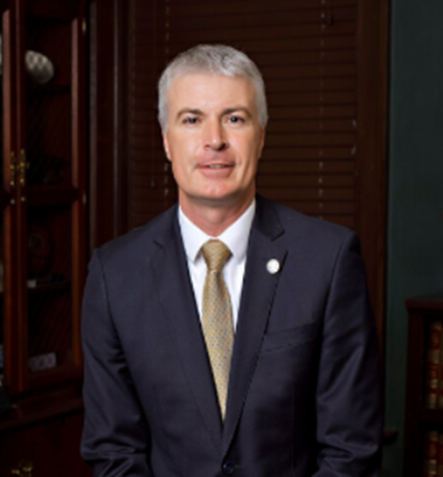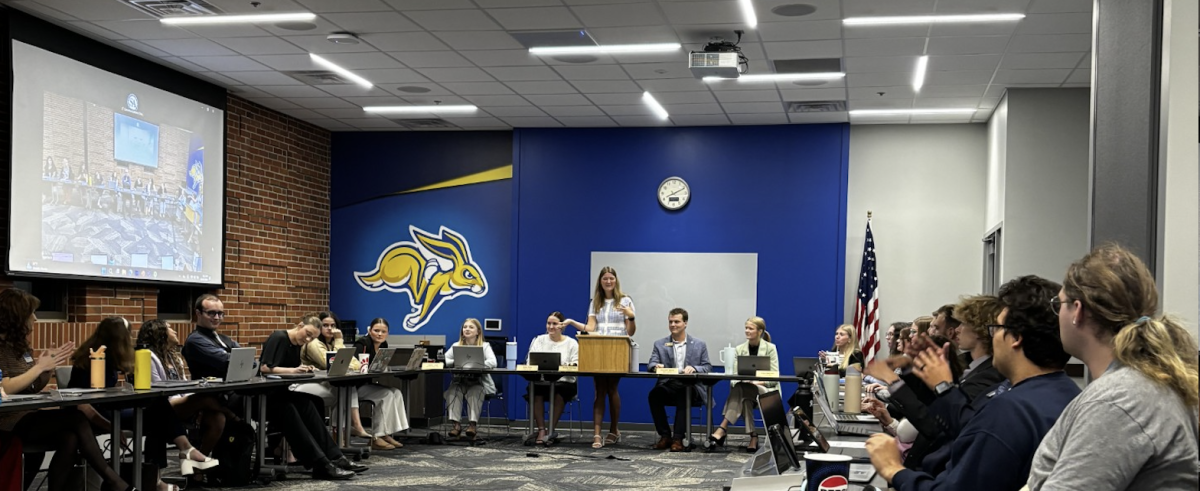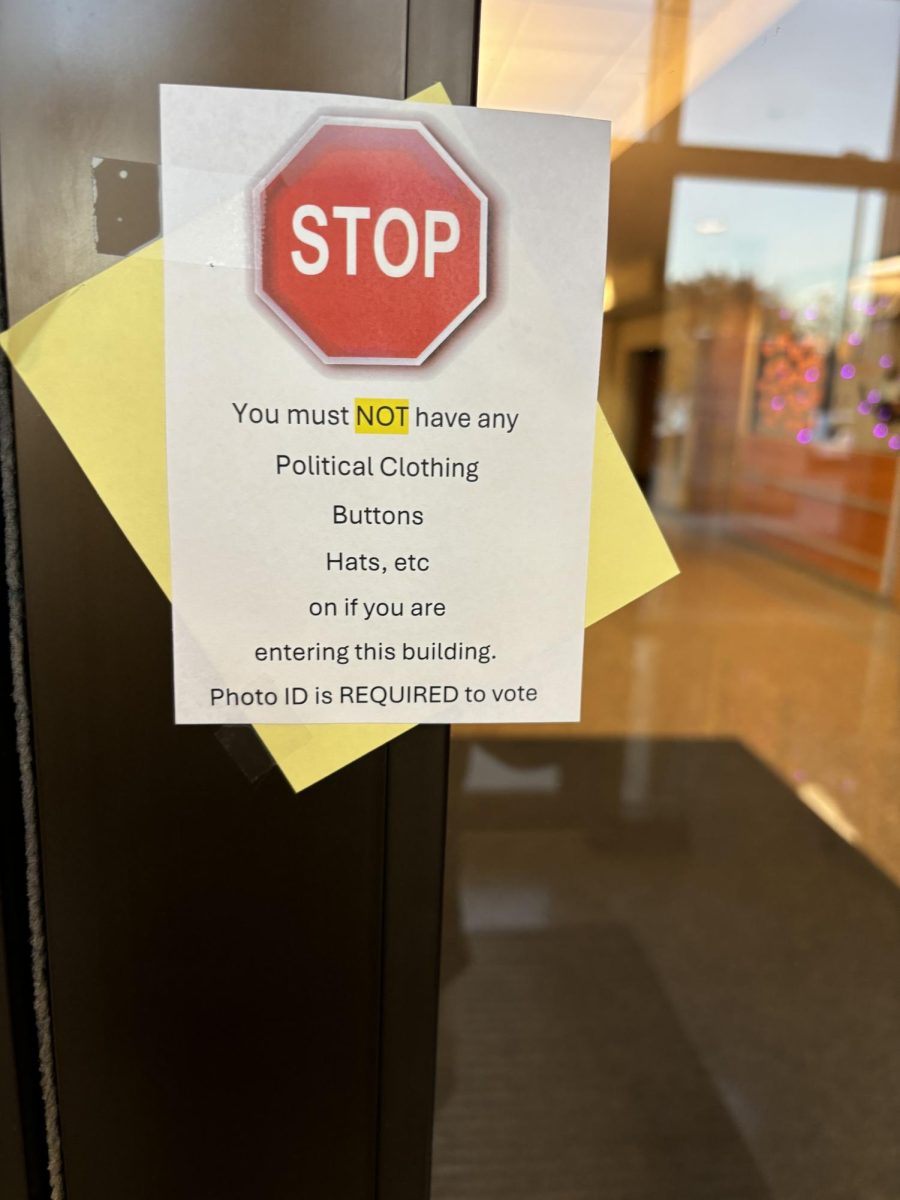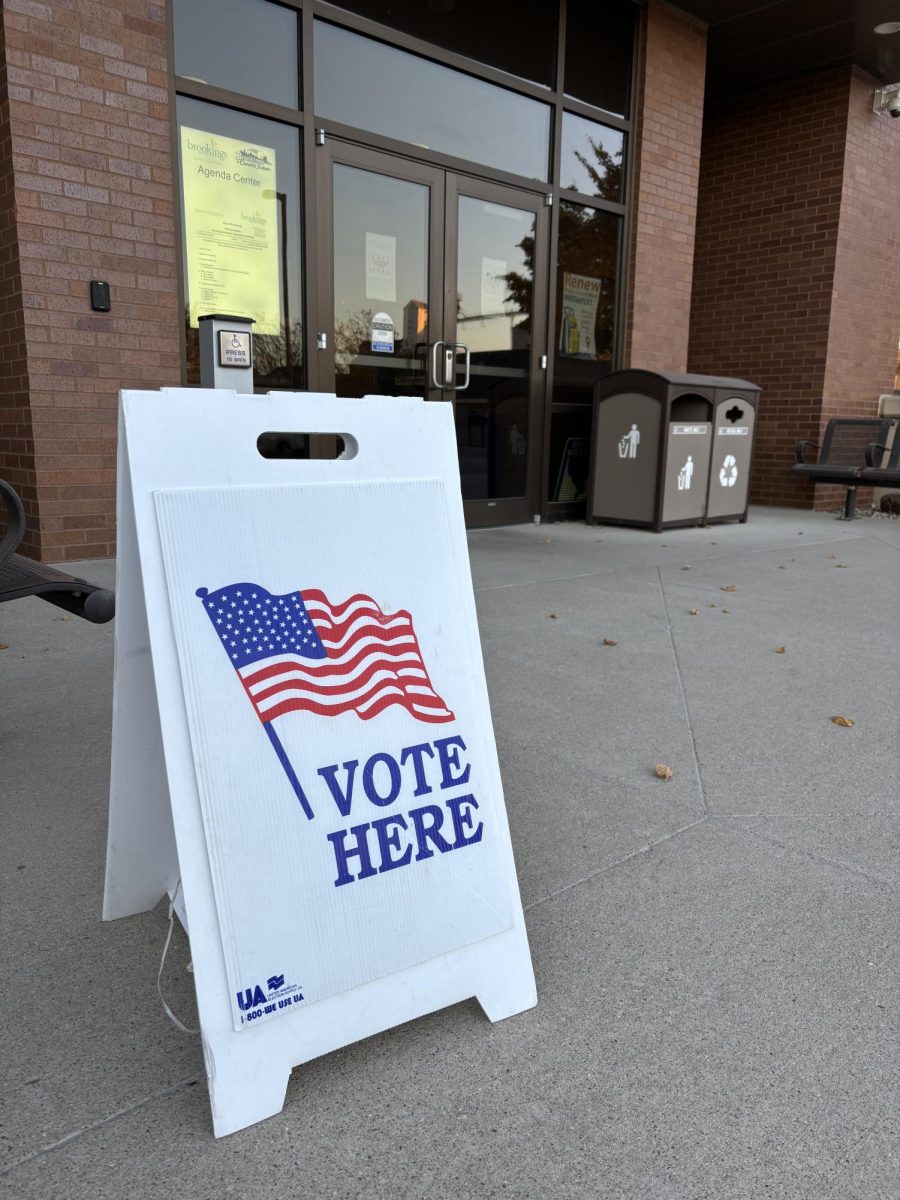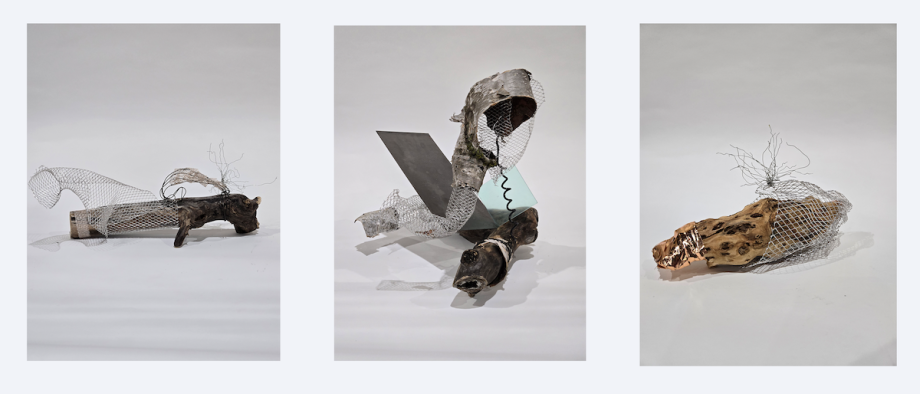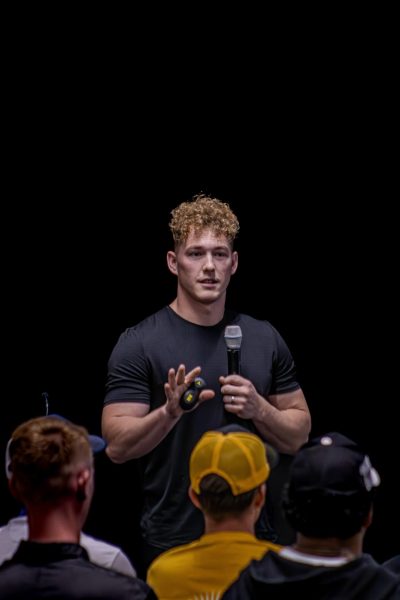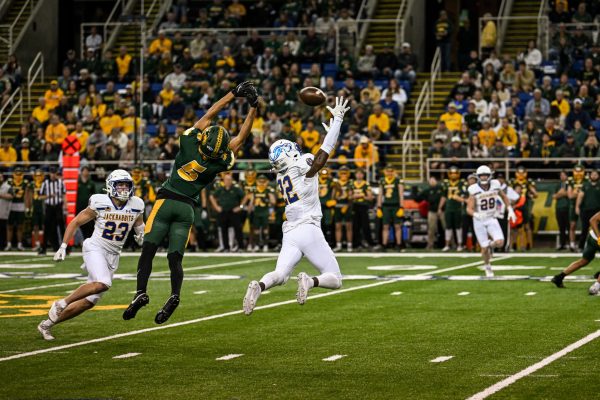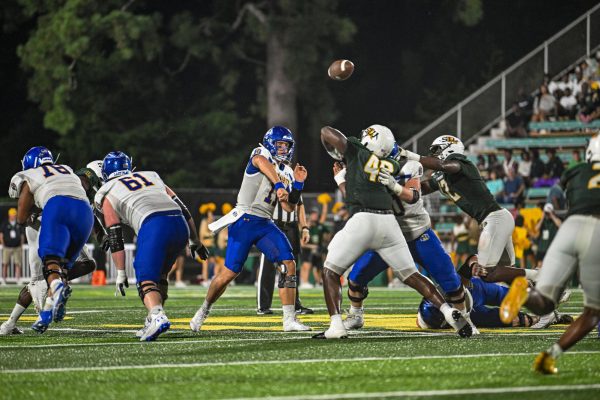Columnist believes businesses should serve all
September 18, 2013
I’m writing this column as a response to a column in last week’s issue of The Collegian that was titled “Discrimination is a two-way street.”
The column addressed a situation in which a “family-owned Christian bakery” refused to bake a wedding cake for a lesbian couple. After a boycott by the LGBTQ community and their allies, the bakery closed its doors. The bakery’s owners now face a lawsuit as a result of their discriminatory business practices.
I am quite disturbed over the column’s assertions that boycott represented some sort of freedom of speech denying mob tactics.
Remember Rosa Parks and the Montgomery bus boycotts?
How about Cesar Chavez and the United Farm Workers?
Or even Alice Paul and the women’s suffrage movement?
These people are hardly leaders of freedom-of-speech-hating mobs, if you ask me.
In addition to the column’s strange portrayal of nonviolent civil disobedience, I am also concerned about its overall mischaracterizing of non-discrimination laws.
Within U.S. law, public accommodations are generally defined as entities, both public and private, that are open for public use. Examples include retail stores, rental establishments and service establishments, as well as educational institutions, recreational service centers. Private organizations and religious institutions with expressive purposes are exempt.
Title II of the Civil Rights Act of 1964 outlawed discrimination based on race, color, religion or national origin in public accommodations engaged in interstate commerce.
Most states have included in their own non-discrimination laws additional protected classes beyond those included in the Civil Rights Act of 1964. Washington, the state where the bakery was located, includes sexual orientation in their non-discrimination laws.
When the bakery owners opened their business to the public, their bakery became a place of public accommodation. They lost their right to discriminate.
The column also equates the bakery’s situation to the extremist Klu-Klux-Klan and Neo-Nazi organizations and their freedom to associate.
This is misguided.
The Klu-Klux-Klan and the way too numerous Neo-Nazi organizations are not places of public accommodations, but rather private organizations with a strictly expressive purpose. Such organizations are free to discriminate as they wish.
The owners of the bakery, although they claim to be the owners of a “Christian bakery”, cannot run their organization as such because it is a place of public accommodation.
Just as they cannot refuse to bake a cake for the soon-to-be married lesbian couple, they cannot refuse to bake a Bar Mitzvah cake because it may conflict with their Christian beliefs.
It is more likely than not that the column’s author has some sort of philosophical disagreement with government non-discrimination laws affecting places of public accommodation. I imagine this is this case, so it certainly would be inappropriate throw around accusations of heterosexism on his part.
But I still find these arguments attacking the legitimacy of non-discrimination laws quite scary.
The column’s author failed to make clear that the bakery owners’ deeply held Christian beliefs are protected under Washington state’s non-discrimination laws.
Do we really want to live in a society in which someone’s race, ethnicity, sexual orientation, gender, gender identity, spiritual beliefs, or any other identity could make them potential victims of legal discrimination in the public sphere?
Can you imagine?
Instead of debating the soundness of current non-discrimination laws, we should be asking ourselves why so many of these laws fail to protect some of the most vulnerable people in our society.
Why is it legal in 33 states to fire someone for being transgender and in 29 states legal to fire someone based on their sexual orientation?
Overall, what I found most frustrating about the column was its absolutely misguided portrayal of reality.
The owners of the bakery came to the sudden realization that the “right to discriminate” does not exist. Perhaps this is a harsh reality, but certainly no evidence of persecution.
Honestly, I cannot understand how anyone believes that the LGBTQ community and their allies are somehow working to take away the rights of others.
That just isn’t the case.
Jameson Goetz is a Spanish major at SDSU. He can be reached at [email protected].

